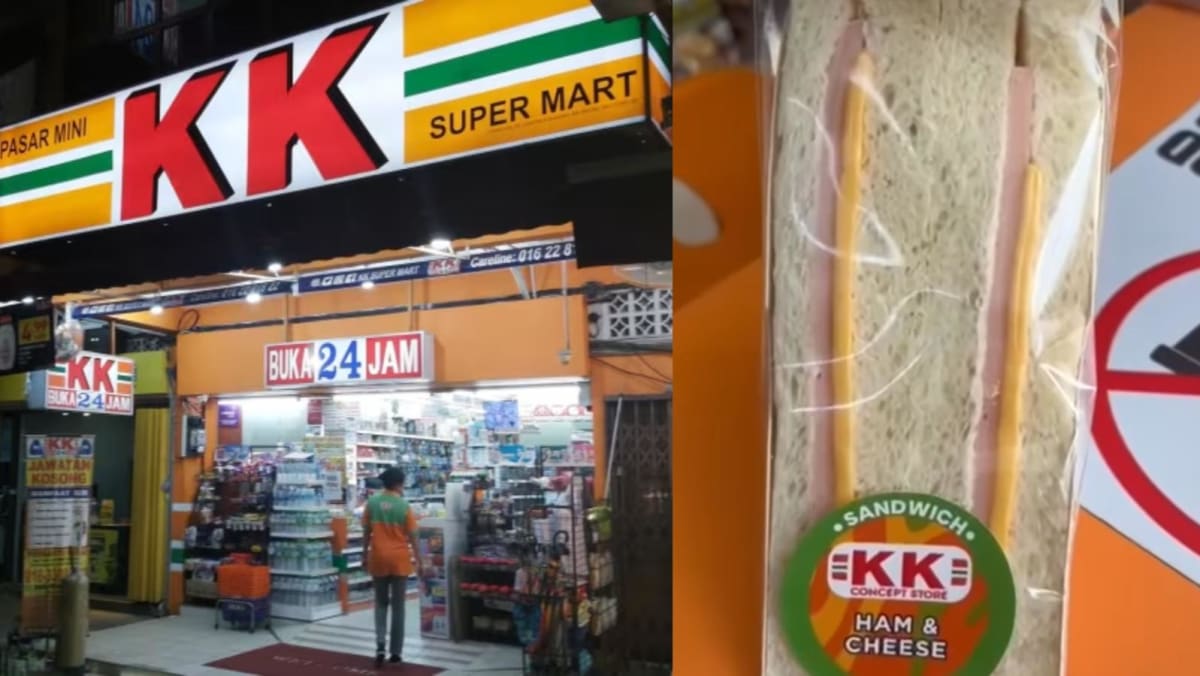Asia
Halal logo misuse controversy: No pork DNA found in KK Mart’s ham and cheese sandwiches, says Malaysia minister

Introduction to the Halal Logo Controversy
In recent months, Malaysia has been abuzz with a significant controversy surrounding the misuse of the halal logo on food products. At the center of this issue is Shake and Bake Cafe Sdn Bhd, a company accused of using the halal certification without proper authorization. This incident has sparked widespread concern among consumers and authorities alike, highlighting the importance of halal certification in Malaysia. The case not only questions the company’s compliance with regulations but also underscores the trust consumers place in such certifications.
Laboratory Findings and Their Implications
Laboratory tests conducted by the Chemistry Department revealed that none of the ham and cheese sandwiches contained pork DNA, a finding that might have been Expected to resolve the issue. However, the absence of pork DNA does not exonerate the company from allegations of misusing the halal logo. The unauthorized use of this logo is a serious offense, as it misleads consumers who rely on halal certification for religious compliance. This discrepancy between the lab results and the legal charges underscores the complexity of the case, indicating that the issue goes beyond the product’s ingredients to the integrity of certification processes.
Charges Against Shake and Bake Cafe Sdn Bhd
Shake and Bake Cafe Sdn Bhd and its director, Ewe Sarn Yeun, face multiple charges under the Trade Descriptions (Certification and Marking of Halal) Order 2011. They are accused of supplying 366 food items bearing the unauthorized halal logo, including various sandwich types. The company pleaded not guilty in court, setting the stage for a legal battle that could have significant repercussions. The charges reflect the stringent regulations surrounding halal certification, emphasizing the need for businesses to adhere strictly to these standards to maintain consumer trust and avoid legal repercussions.
Potential Penalties and Their Significance
The penalties for violating halal certification laws in Malaysia are severe. If convicted, Shake and Bake Cafe Sdn Bhd and its director could face fines up to RM100,000 and imprisonment for up to three years. Additionally, charges under the Trademarks Act 2019 could result in further fines and prison terms for each item marked with the unauthorized logo. These penalties highlight the seriousness with which Malaysian authorities view such offenses, underscoring the importance of compliance and ethical business practices. The potential consequences serve as a deterrent to other businesses, reinforcing the need for adherence to certification standards.
Role of Jakim in Halal Certification
The Department of Islamic Development (Jakim) is the primary body responsible for halal certification in Malaysia. Jakim’s role is crucial in ensuring that products meet the necessary religious standards, thus maintaining the integrity of the halal logo. Certification involves rigorous checks and audits, providing consumers with assurance of product compliance. Jakim’s involvement in this case illustrates the authority’s commitment to upholding the authenticity of the halal certification process, ensuring that businesses do not exploit this trust for commercial gain.
Implications for Businesses and Consumers
The case of Shake and Bake Cafe Sdn Bhd serves as a cautionary tale for businesses in Malaysia, emphasizing the importance of adhering to halal certification regulations. It also raises consumer awareness about the validity of certifications on food products. For businesses, this case underscores the need for thorough understanding and compliance with halal standards to avoid legal and reputational risks. For consumers, it highlights the reliance on certification bodies like Jakim to ensure products meet religious and quality expectations. As the case progresses, it will likely set a precedent, influencing future business practices and enforcement of halal certification regulations in Malaysia. This incident is a reminder of the delicate balance between business practices, legal compliance, and consumer trust.
-

 Tech2 days ago
Tech2 days agoCanon’s New Camera Is in a Category Once Thought Practically Dead
-

 Entertainment6 days ago
Entertainment6 days agoKhloe Kardashian Says Mom Kris Jenner ‘Gets Mad at Me’ for Wearing ‘Baggy Sweats’ Out of the House
-

 Money6 days ago
Money6 days agoCal Newport’s Productivity Hack That Can Also Help You Escape Financial Burnout
-

 Tech7 days ago
Tech7 days agoBest Internet Providers in Cincinnati, Ohio
-

 Sports3 days ago
Sports3 days agoChargers to play 2025 regular season opener in Brazil
-

 Tech5 days ago
Tech5 days agoBest AirPods Max Accessories for 2025
-

 World7 days ago
World7 days agoHow to Watch USA vs. Cuba: Live Stream 2025 Concacaf U-17 Men’s Qualifiers, TV Channel
-

 Tech2 days ago
Tech2 days agoBest Vitamins for Healthy Hair, Skin and Nails in 2025










